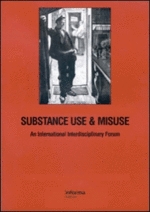Resum
Background: Although evidence shows that engaging in chemsex can be associated with poor mental health, little is known about the relationship between psychological factors and this type of drug use. We aim to explore associations between engagement in chemsex and several
psychological variables (adverse life events, attachment styles, emotional regulation skills, self-care
patterns) in a sample of gay, bisexual, and other men who have sex with men (GBMSM) with
drug-related problems. Methods: A group of GBMSM engaged in chemsex (n = 41) and a control
group of GBMSM (n = 39) completed an online survey to assess drug-related problems and the
abovementioned psychological variables, in which both groups were compared. All analyses were
adjusted for covariates showing significant differences between groups. Results: Compared to the
control group, participants engaged in chemsex showed significantly higher frequencies of an
avoidant-insecure attachment style and early adverse life events, regardless of all covariates (HIV
status, job situation, and place of birth). Poorer emotional regulation and self-care patterns and
a higher frequency of sexual abuse were also found in participants engaged in chemsex, though
we cannot rule out the influence of HIV status on this second group of variables. Conclusions:
Some people with drug-related problems engaged in chemsex might have suffered early adverse
events and might have an avoidant-insecure attachment style. Moreover, those who have been
diagnosed with HIV might show higher emotional dysregulation and poorer self-care patterns.
These variables should be routinely evaluated in this population.






